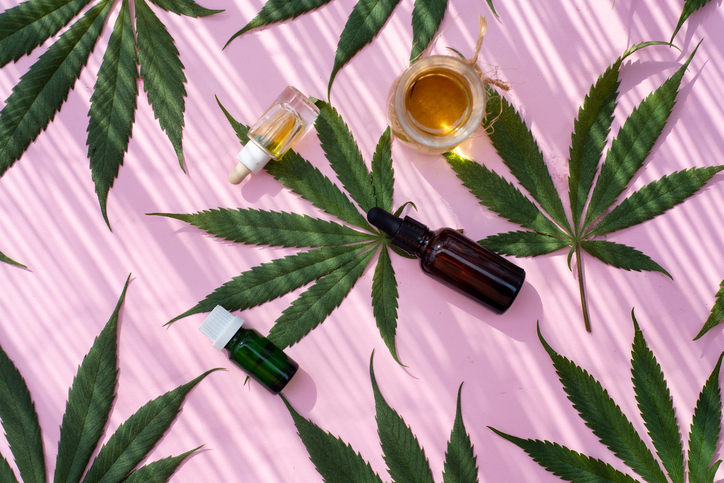Dr Des Corrigan finds that when it comes to the labelling of some CBD products, the devil is in the detail
According to a recent US Senate report, the FDA and the Federal Trade Commission (FTC) have issued at least 30 warnings and six enforcement actions to companies selling CBD-containing products. In one such letter dated 18 March of this year, the FDA referred to significant violations of cGMP and misbranding regulations for dietary supplements under US law. The letter noted a failure by the company to ensure adequate QC procedures in order to establish the identity and potency of its finished products, including a lack of microbiological and stability testing.
The company claimed that CBD was included in two pain relief products as an inactive ingredient, although the prominence given to CBD on the labelling suggested otherwise. The FDA did not accept that CBD was inactive because, in licensing Epidiolex for treatment-resistant epilepsy in children, it had determined that CBD was pharmacologically active and thus was a ‘new drug’ requiring full authorisation before it could be marketed. The letter also drew attention to the lack of warnings on the label, such as those on Epidiolex relating to risks such as liver injury.
Initially, such injury was thought to be due to an interaction between clobazam and CBD, a common combination in childhood epilepsy. However, an October 2020 paper in Clinical Pharmacology and Therapeutics reported on a phase I clinical trial of CBD in 16 healthy adults, where 44 per cent of them ended up with ALT levels greater than the Upper Limit of Normal (ULN) and nearly a third had levels greater than five times the ULN, indicating the existence of drug-induced liver injury (DILI). Other warnings required include drug interactions, potential male reproductive toxicity, somnolence, insomnia, diarrhoea, decreased appetite, abdominal pain, upset stomach, changes in mood, irritability and agitation. How many such warnings appear on any CBD products on sale in your pharmacy?
At present, the only clinically accepted evidence for CBD relates to its use as an add-on in Dravet’s and Lennox-Gastaut syndromes
The absence of cGMP due to an inadequate QC unit and inadequate batch production and control records was the subject of a letter sent recently to a second company. The FDA also complained that this company’s website made a series of unsubstantiated medical claims, including the fact that one product was “the first over-the-counter CBD-infused topical pain cream product to receive FDA certified registration”.
This was deemed misleading, implying an endorsement of CBD by the FDA that does not exist. This company seems to want to have its cake and eat it, because the labelling identifies CBD as an inactive ingredient, while at the same time representing it as having a range of active pharmacological effects, such as relief of pain and depression, lowering anxiety, blood pressure and intestinal inflammation.
The FTC, which prohibits unfair and deceptive advertising of products claiming to prevent or treat human diseases where competent and reliable scientific evidence is not available, took action in December last against six sellers of CBD for making unsupported claims about treatment for cancer, heart disease, hypertension and Alzheimer’s disease. At present, the only clinically accepted evidence for CBD relates to its use as an add-on in Dravet’s and Lennox-Gastaut syndromes. This is not to say that other scientifically supported activities will not emerge from the huge amount of ongoing research, but claims for its value in other conditions lack proof at this time.
The need for adherence to GMP, especially QC procedures, seems obvious to anyone with a pharmacy background but not, it seems, to many in the cannabis industry. I have mentioned previously the poor quality of CBD products, as evidenced by our own Food Safety Authority and other regulators. A recent FDA report to the US Congress has again drawn attention to this problem. In 2018, the FDA analysed 78 products, one of which contained 16mg of THC and another, described as a CBD-infused ‘Gummy Bear’ (the American version of Jelly Tots), was laced with the synthetic cannabinoid MMB-FUBINACA linked to 11 deaths in Europe.
In 2019, of 31 products encompassing tinctures, oils, capsules, powders, edibles, beverages and pet products (I kid you not), only seven products had a CBD content within 20 per cent of the label claim. No CBD was detected in four products, while 48 per cent contained detectable amounts of THC. A similar percentage of the 147 products analysed last year contained THC and only 46 of them had a CBD concentration within 20 per cent of the claimed amount.
Now, it is not as if this industry cannot afford to put in place adequate consumer safeguards regarding quality, etc, as it is an extremely profitable industry. The US Senate report states that the licit cannabis market will produce as much as $24 billion in profits by 2025, $9 billion of which will be from medical cannabis sales. For CBD, the forecast is for global sales of $16 billion by 2025, with UK sales of £450 million last year. Alongside these huge profits has come huge lobbying power at both state and federal levels in the US and which is beginning to make its presence felt in other countries.
Many commentators refer to ‘Big Pot’ or ‘Big Marijuana’ in the same way they describe the lobbying power of Big Tobacco and the alcohol industry. An American lawyer, Robert Corry, who helped draft Colorado’s laws allowing the retail sale of cannabis in 2012, describes the current reality “of a commercialised, for-profit, elitist, government-protected, monopolistic industry that perpetuates itself and its obscene profits to the detriment of the public good and the planet Earth.” In his expose in the US publication The Gazette, he goes on to refer to a “small oligopoly of crony capitalists” and claims that “the inmates are running Colorado’s marijuana asylum”. Strong stuff from an ardent advocate of legalised cannabis.
As a sign of Big Pot’s political clout , he describes how the Governor of Colorado and the Mayor of Denver deemed marijuana businesses as “essential” during the pandemic, while at the same time shutting schools, churches, gyms and most retail shops. He also highlights the significant environmental damage done by this industry, along the lines described in my February article.
The FDA is to be commended for tackling abuses by this industry, given its political power. I hope that the FSAI and the HRA continue to be vigilant about CBD products on the Irish market and will ignore propaganda about a potential hemp dividend for Irish farmers. Individual pharmacists must take account of the apparent cavalier attitude to GMP by many manufacturers when deciding to stock CBD products. The advice when it comes to unapproved and unproven CBD products must not only be caveat emptor, but also caveat venditor.








